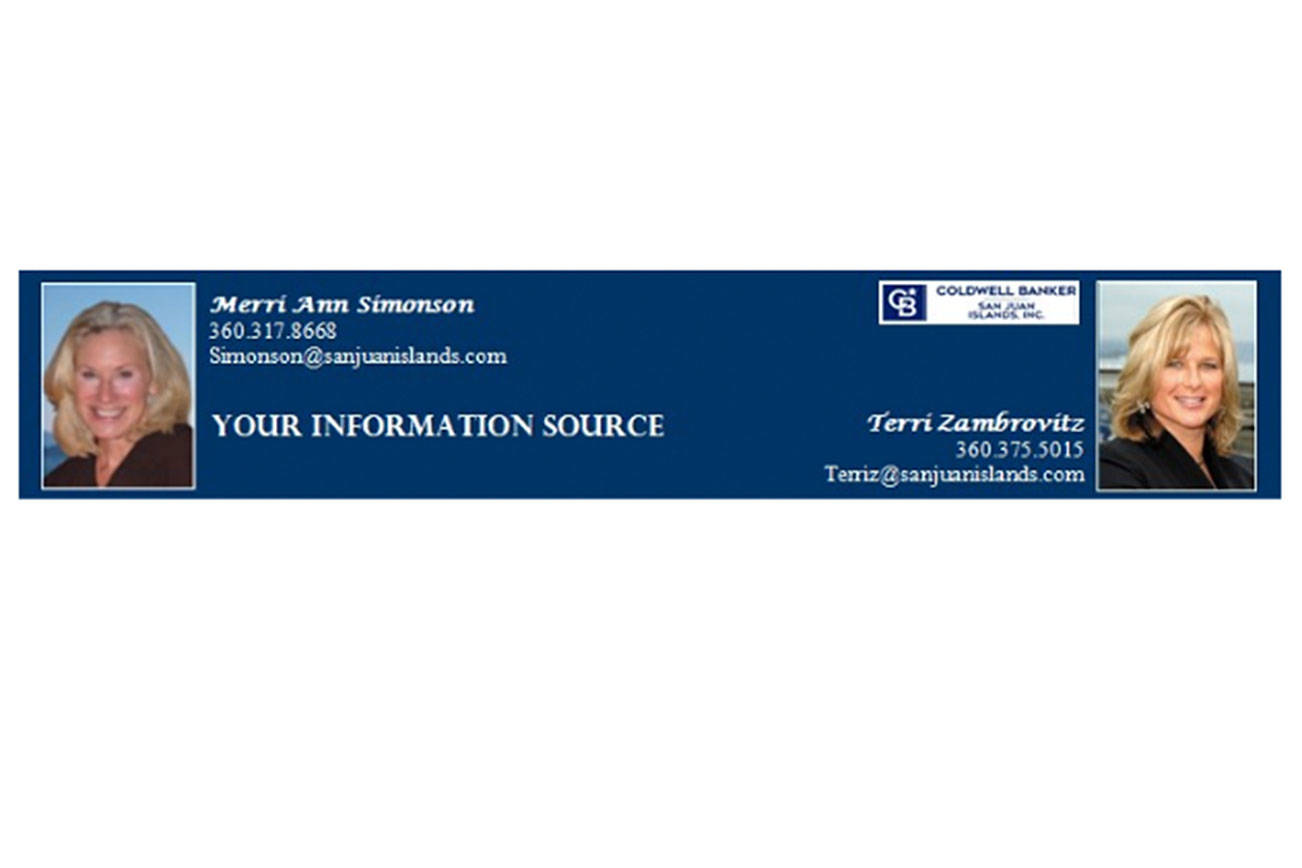1. Select an Agent to Represent You
As you may be aware, all of the brokerage firms on San Juan Island are members of the Northwest Multiple Listing Service; therefore, any of the agents can assist you with any of the properties listed with Coldwell Banker San Juan Islands or other brokerage firms. One of the first steps in purchasing real estate on San Juan is to select an agent to represent you. Ideally you should select ONE agent that you feel will provide you with the level of customer service that you require.
It is important for you to understand the Law of Real Estate Agency. The State law allows for three types of agency representation:
• Buyer’s representation is when the agent is representing the buyer and intends to obtain property at the lowest possible sales price for the buyer.
• Seller’s representation is when the agent has a listing with the seller and is attempting to obtain the highest possible sales price for the seller.
• Dual agency is when the agent shows a buyer one of their own listings and the buyer decides to purchase it. In the case of dual agency, the agent represents the seller as well as the buyer and negotiates the best possible outcome for both.
2. Determine Your Source of Funds
• Cash at Closing
• Institutional Financing
• Seller Financing
• 1031 Tax Exchange
If you intend to finance your purchase, it is prudent to meet with your lender and determine the maximum loan amount you are qualified for. This amount, coupled with the cash you have allocated, will determine the maximum sales price. You also need to determine your closing cost for the purchase as that fits into the equation as well. We have numerous lenders that are active with financing in the islands if you are interested.
3. Closing Costs for a Purchase Transaction
Normal buyer’s closing costs on a cash transaction include 1% Conservation Area Real Estate Excise Tax or commonly known as the Land Bank Tax. Further, approximately .5% for the Affordable Housing Excise Tax, half of the escrow fee, prorations of real estate taxes, utilities and HOA dues, recording fees, notary charges and your hazard insurance for the home. If you are using a lender, you will receive a Good Faith Estimate from them after you make loan application. Their fees are abundant and too numerous to list in this article.
These closing costs add up and are notable so be sure to be prepared.
4. Determine the Type of Property You Desire to Purchase
One of the best ways to do this is to develop a list of your desired property features, and a list that details how you intend to use the property. Then prioritize those lists. For example, when I am working with a waterfront purchaser, I obtain the following information:
• Is beach access required or is high bank OK?
• Do you have a boat? Do you plan to buy a boat?
• Bay protection or west side open with current?
• Bay view or expansive wide open view?
• Do you want to be near crabbing and clamming?
• Do you want to see the whales, boat traffic and/or sunsets?
• Amount of trees, direction of sun exposure and amount of privacy?
• Weather exposure?
• Internet connectivity? Working from home?
• Desire a Vacation Rental Permit?
• Desire a manufactured or tiny home?
Read the full article here.
*Sponsored article
Merri Ann Simonson
Managing Broker
Coldwell Banker San Juan Islands Inc
1-800-451-9054 Office
360-317-8668 Cell



